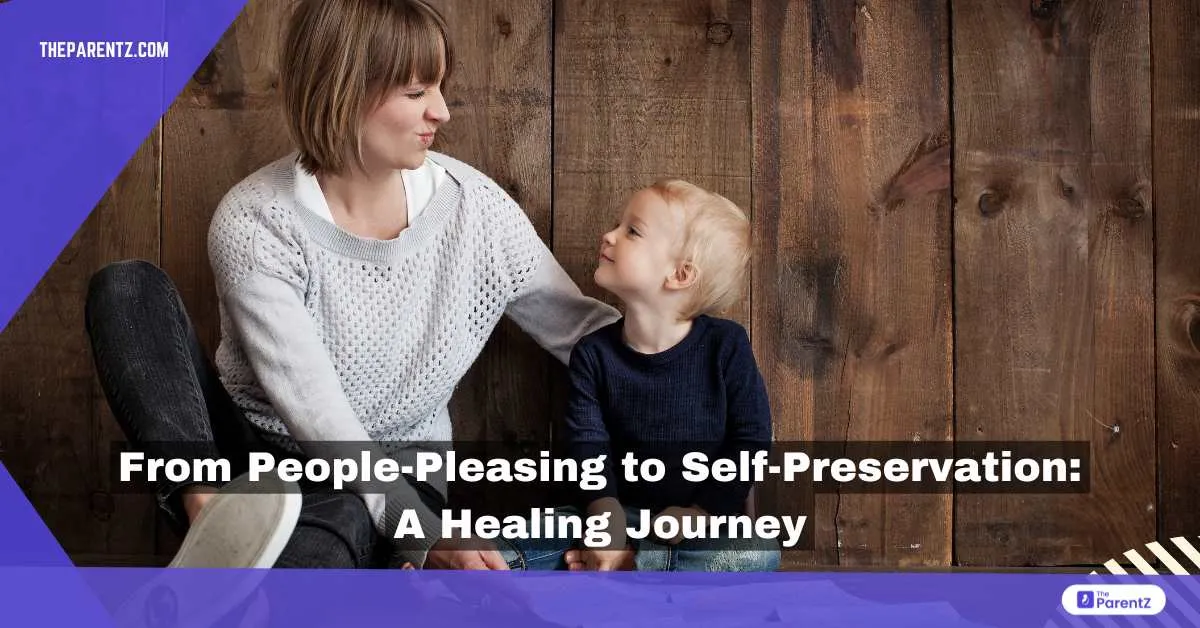Have you ever noticed your child always saying “yes” to things they don’t seem excited about? Or maybe they’re constantly worried about making everyone happy, even at the cost of their own happiness? If you’ve seen these signs, you’re not alone. Many children fall into the trap of people-pleasing, and while it might seem harmless at first, it can deeply affect their emotional health and growth.
As parents, it’s heartbreaking to think our child might be struggling silently, prioritizing others’ needs over their own. But there’s hope. Together, we can help them move from people-pleasing to self-preservation—a journey of healing and self-discovery.
How Does People-Pleasing Begin?
People-pleasing often starts in childhood, and its roots can be surprisingly complex. Children are naturally wired to seek approval—it’s how they feel safe and loved. But sometimes, this need for approval becomes excessive. This need might stem from various scenarios:
- A critical parent who only shows affection when the child meets impossibly high standards
- An emotionally volatile family environment where the child becomes a peacemaker
- Constant comparison with siblings or peers
- Experiencing conditional love that feels more like a performance than genuine acceptance
What starts as a protective strategy becomes a deeply ingrained pattern. The child learns that their emotional safety depends on anticipating and meeting everyone else's expectations. They become experts at reading rooms, sensing moods, and morphing themselves to fit whatever scenario will cause the least friction.
For example, imagine a child who always agrees to play a game they don’t enjoy just because their friends want to play it. Or a child who never speaks up when they’re overwhelmed with homework because they don’t want to disappoint their teacher. Over time, these small sacrifices can pile up, leaving the child unsure of who they really are or what they truly want.
The Hidden Costs of People-Pleasing
While people-pleasing might seem like a harmless trait—after all, isn’t being kind and considerate a good thing?—it can take a serious toll on your child’s emotional health and future.
When children constantly prioritize others over themselves, they start losing touch with their own needs and desires. They may feel drained or resentful but won’t know how to express it. Worse still, they might grow up believing that their worth is tied to how much they can please others. This can lead to low self-esteem, anxiety, and even depression.
People-pleasers also struggle with boundaries—they feel guilty saying “no” even when they’re overwhelmed. This inability to set limits can make them vulnerable to manipulation or burnout as they try to meet everyone’s expectations.
It's like watching a vibrant color gradually fade, or a passionate spark being slowly extinguished. The child's unique personality gets buried under layers of accommodations and unexpressed emotions.
Why Self-Preservation Matters
Here’s the truth: your child deserves to take care of themselves just as much as anyone else. Self-preservation isn’t selfish—it’s essential for emotional well-being. It means recognizing their own needs and protecting their mental health without feeling guilty about it.
Moving from people-pleasing to self-preservation is a healing journey that helps children build confidence in who they are. It teaches them that their worth isn’t tied to how much they can do for others but rather in simply being themselves.
Sometimes, life forces this transition. Maybe your child faces academic pressure that leaves them feeling stretched too thin. Or maybe social dynamics push them into situations where pleasing everyone becomes impossible. These moments can be painful but also transformative—they’re opportunities for growth.
How Parents Can Help
As parents, you play a huge role in guiding your child through this journey. Here’s how you can support them:
1. Create a Safe Space for Communication
Let your child know it’s okay to share their feelings—even if those feelings aren’t “perfect.” Listen without judgment or criticism. Sometimes, just hearing “I understand” from you can make all the difference.
2. Teach Them About Boundaries
Help your child understand that saying “no” doesn’t make them a bad person—it makes them strong and self-aware. You can practice this together by encouraging them to voice their preferences at home or in small situations.
3. Lead by Example
Children learn by watching us. Show them what healthy self-preservation looks like in your own life—whether it’s taking time for yourself or respectfully declining commitments when you’re overwhelmed.
4. Celebrate Their Individuality
Remind your child that who they are is enough—without needing to change or bend for others’ approval. Encourage them to explore hobbies and interests that make them happy instead of worrying about what others think.
5. Validate Their Struggles
If your child feels guilty about prioritizing themselves, let them know it’s normal—and okay—to feel this way at first. Healing takes time, and every step forward is worth celebrating.
A Message for Children Who Are Struggling
If you’re reading this as someone who feels stuck in people-pleasing habits, we see you, and we understand how hard it is. You’ve been trying so hard to make everyone happy—and maybe somewhere along the way, you forgot about yourself. But here’s the good news: You don’t have to keep living like this.
You are allowed to say “no.” You are allowed to take care of yourself first sometimes—and that doesn’t make you selfish; it makes you strong. Your feelings matter just as much as everyone else’s, and you deserve love simply for being you—not for what you do for others.
This isn’t an easy journey, but you’re not alone in it. You have people who care about you (your parents included!) who want nothing more than for you to feel happy and whole.
Conclusion
As parents and children navigate this healing journey together, it’s important to remember that change takes time—and patience is key. There will be moments of doubt or discomfort as your child learns to prioritize themselves in healthy ways—but every step forward is progress worth celebrating.
As children learn that their worth isn’t tied to pleasing others but rather in being true to themselves, they’ll grow into resilient individuals ready to take on the world with confidence.








Be the first one to comment on this story.